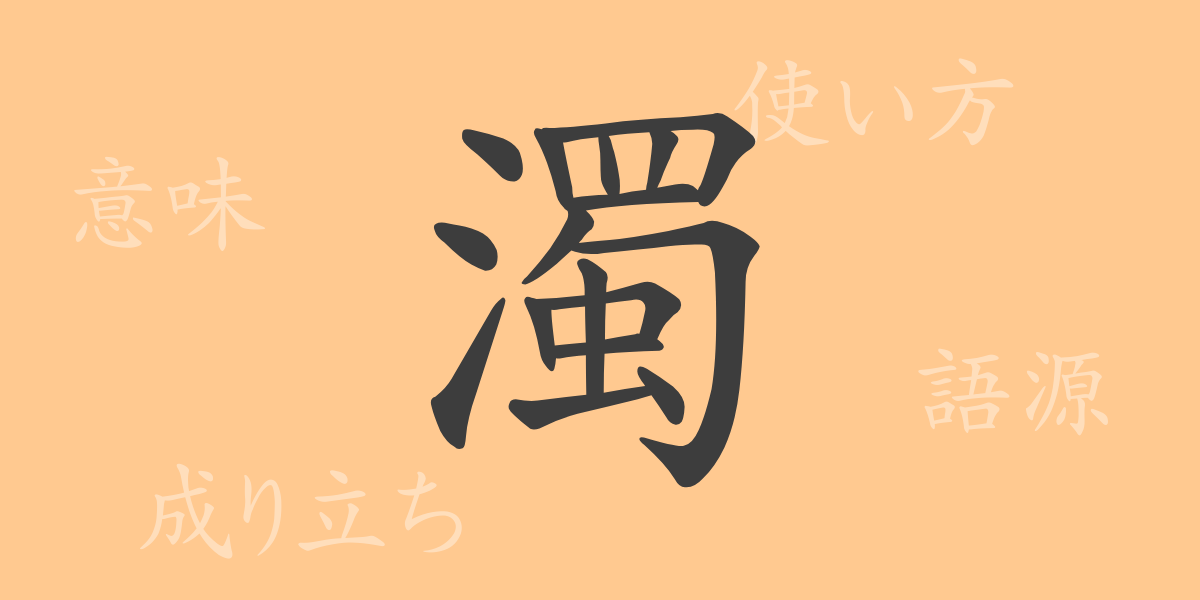Among the many kanji in Japanese, each with its own unique history and meaning, “濁” (だく) (daku) holds a special place as a commonly used character deeply ingrained in our daily lives. This article delves into the origins, meanings, and uses of “濁,” as well as exploring idioms and proverbs that employ it, to uncover its rich linguistic allure.
Origins of ‘濁’ (だく) (daku)
The kanji “濁” evolved from the ancient character meaning “muddy,” used in ancient China to describe impure water. Over time, this character evolved metaphorically to signify states of impurity or ambiguity.
Meaning and Usage of ‘濁’ (だく) (daku)
In contemporary Japanese, “濁” literally refers to something becoming turbid, such as water, and metaphorically to situations or voices that are impure or unclear. It’s used to describe a muddied heart or obscured speech, indicating moral or spiritual impurity.
Readings, Stroke Count, and Radical of ‘濁’ (だく) (daku)
Understanding “濁” involves knowing its readings, stroke count, and radical:
- Readings: On’yomi (Sino-Japanese reading) is “ダク” (daku), Kun’yomi (native Japanese reading) are “にご.る” (nigoriru) and “にご.す” (nigosu).
- Stroke Count: “濁” consists of 16 strokes.
- Radical: The radical is “水” (みず, さんずい) (mizu, sanzui), associated with water.
Phrases, Idioms, and Proverbs Using ‘濁’ (だく) (daku) and Their Meanings
Phrases and idioms involving “濁” play a significant role in Japanese:
- 濁流 (だくりゅう) (dakuryuu): Literally a turbulent muddy stream, metaphorically a chaotic or tumultuous situation.
- 濁世 (だくせい) (dakusei): A corrupt or morally degraded society.
- These expressions showcase the depth of expression in the Japanese language.
Summary on ‘濁’ (だく) (daku)
The kanji “濁” not only embodies the complexity of Japanese expressions but also plays a crucial role in conveying emotions and situations through words. This article aims to deepen understanding of “濁,” enhancing appreciation of the nuances in Japanese communication.

























